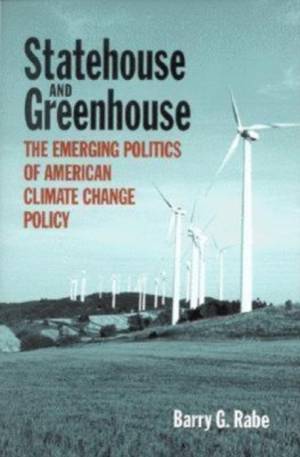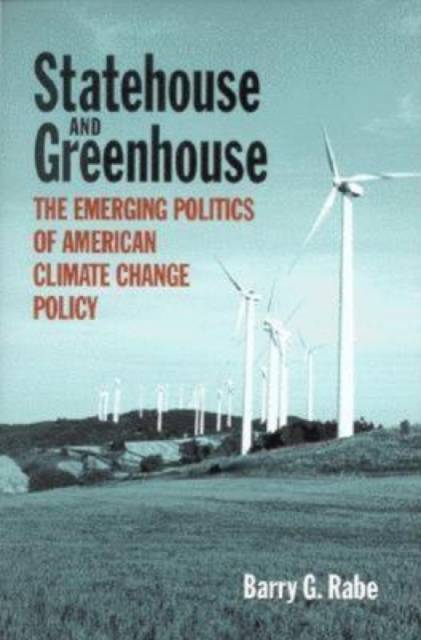
- Afhalen na 1 uur in een winkel met voorraad
- Gratis thuislevering in België vanaf € 30
- Ruim aanbod met 7 miljoen producten
- Afhalen na 1 uur in een winkel met voorraad
- Gratis thuislevering in België vanaf € 30
- Ruim aanbod met 7 miljoen producten
Zoeken
Statehouse and Greenhouse
The Emerging Politics of American Climate Change Policy
Barry G Rabe
Paperback | Engels
€ 47,45
+ 94 punten
Omschrijving
No environmental issue triggers such feelings of hopelessness as global climate change. Many areas of the world, including regions of the United States, have experienced a wide range of unusually dramatic weather events recently. Much climate change analysis forecasts horrors of biblical proportions, such as massive floods, habitat loss, species loss, and epidemics related to warmer weather. Such accounts of impending disaster have helped trigger extreme reactions, wherein some observers simply dismiss global climate change as, at the very worst, a minor inconvenience requiring modest adaptation. It is perhaps no surprise, therefore, that an American federal government known for institutional gridlock has accomplished virtually nothing in this area in the last decade. Policy inertia is not the story of this book, however. Statehouse and Greenhouse examines the surprising evolution of state-level government policies on global climate change. Environmental policy analyst Barry Rabe details a diverse set of innovative cases, offering detailed analysis of state-level policies designed to combat global warming. The book explains why state innovation in global climate change has been relatively vigorous and why it has drawn so little attention thus far. Rabe draws larger potential lessons from this recent flurry of American experience. Statehouse and Greenhouse helps to move debate over global climate change from bombast to the realm of what is politically and technically feasible.
Specificaties
Betrokkenen
- Auteur(s):
- Uitgeverij:
Inhoud
- Aantal bladzijden:
- 212
- Taal:
- Engels
Eigenschappen
- Productcode (EAN):
- 9780815773092
- Verschijningsdatum:
- 17/02/2004
- Uitvoering:
- Paperback
- Formaat:
- Trade paperback (VS)
- Afmetingen:
- 152 mm x 228 mm
- Gewicht:
- 312 g

Alleen bij Standaard Boekhandel
+ 94 punten op je klantenkaart van Standaard Boekhandel
Beoordelingen
We publiceren alleen reviews die voldoen aan de voorwaarden voor reviews. Bekijk onze voorwaarden voor reviews.







